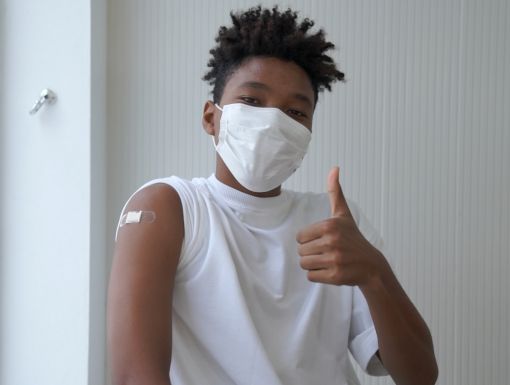
How Is the COVID Vaccine Dosage for Children Under 12 Different?
The recent announcement by Pfizer that their COVID-19 vaccine is safe, effective and well-tolerated for children ages 5-11 has created cautious optimism among many parents and pediatricians.
The positive data from clinical trials conducted by the two drug makers will be studied by the U.S. Food and Drug Administration. Pfizer submitted an emergency use authorization request to the FDA on Oct. 7. It is anticipated that the coronavirus vaccine will soon become available for the younger school-aged children, perhaps before the end of the year.
If approved by federal regulators, children in the 5-11 age group would receive a reduced dose of vaccine compared to what adults have been receiving. As with adults, the youngsters would be given a two-dose regimen with the injections coming 21 days apart. Pfizer said clinical studies indicated the vaccine administered at that reduced amount over that time period demonstrate positive results in children.
Timing is Important
The rise of the exceptionally transmissible delta variant has coincided with the reopening of school. This confluence spells out why children would immediately benefit from a vaccine. The American Academy of Pediatrics reported that nearly 30 percent of COVID-19 cases in the first week of September were among children. Although children rarely suffer severe illness, a vaccine for them could help curb outbreaks in schools and perhaps reduce the risk of further spikes among the general population.
The data from the clinical trials is to be scrutinized by federal regulators and the CDC before it can be approved for use under a federal emergency use declaration. That process could take up to a month.
Since Dec. 11, 2020, the Pfizer COVID-19 vaccine has been available under emergency use authorization in those 16 years of age and older. That authorization was expanded to include those 12 through 15 years of age on May 10, 2021. On Aug. 23, the FDA formally approved the vaccine, a move that replaced the emergency use authorization granted by the agency last year. The formal approval means the Pfizer vaccine has now gone through the full standard review process and the FDA has determined it to safe and effective for preventing COVID-19.
However, children under the age of 12 remained ineligible for the vaccine for the start of the school year.
A smaller dose for smaller children, similar level of protection
Younger children’s immune systems are not the same as those of adolescents and adults. The trials conducted by Pfizer involved 2,268 participants 5 to 12 years of age. The results indicated that a much smaller dose of vaccine was safe and effective for those in that age group.
The participants were given a two-dose regimen administered 21 days apart, a third of the dose used for people 12 and older. The antibody responses in the participants given the smaller doses were comparable to those recorded in a previous Pfizer study in people 16 to 25 years of age immunized with 30 microgram doses, according to Pfizer.
“The 10 microgram dose was carefully selected as the preferred dose for safety, tolerability and immunogenicity in children 5 to 11 years of age,” the company said in a statement.
Pfizer is also testing the vaccine in children younger than 5 years of age. Those children are receiving 3 microgram doses for each injection. The results of those tests are expected during the fourth quarter of 2021.
Learn more about COVID-19 vaccines.


